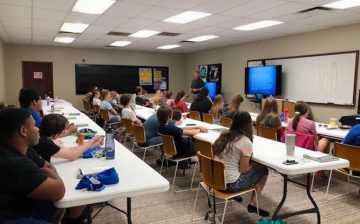Driving is an essential skill that offers both independence and convenience. For individuals venturing into the world of driving lessons without prior experience, understanding the key aspects of the process is crucial. Let’s delve into the essentials that will prepare you for a successful journey towards becoming a confident and responsible driver.
- Introduction
- Importance of Driving Lessons
Embarking on the journey of learning to drive is more than just a rite of passage; it’s a life skill that opens doors to various opportunities. Driving lessons provide the foundation for safe and responsible driving with low Driving school cost, equipping individuals with the knowledge and skills needed to navigate the roads effectively.
- Target Audience
This article is tailored for individuals with no prior experience in driving who are considering taking driving lessons. Whether you’re a teenager eager to get behind the wheel or an adult seeking to acquire a new skill, this guide is designed to provide insights and tips to make your driving lesson experience a positive one.
- Understanding the Basics
- Age Requirements
Before diving into driving lessons, it’s essential to be aware of the age requirements for obtaining a driver’s license. Different regions have varying age limits, and understanding these regulations is the first step towards eligibility.
- Eligibility for Driving
Apart from age, certain health and legal requirements must be met to qualify for driving lessons. Knowing the eligibility criteria ensures a smooth and hassle-free process as you embark on your driving journey from driving school.
III. Choosing the Right Driving School
- Accreditation and Certification
Selecting a reputable driving school is paramount. Look for schools that are accredited and certified, ensuring that they meet the necessary standards for providing quality driving education.
- Reviews and Recommendations
Before enrolling in a driving school, take the time to read reviews and seek recommendations from friends or family. Learning from the experiences of others can help you make an informed decision about the best school for your needs.
- Cost Considerations
- Tuition Fees
Driving lessons come with associated costs, including tuition fees. Understanding the financial aspects of the journey helps you plan and budget effectively.
- Additional Expenses
Beyond tuition fees, consider additional expenses such as licensing fees, practice materials, and any other costs associated with the learning process.
- Scheduling and Flexibility
- Class Timings
Choose a driving school that offers flexible class timings to accommodate your schedule. Being able to attend classes at convenient times enhances the learning experience.
- Make-up Classes
Life is unpredictable, and scheduling conflicts may arise. Ensure that the driving school provides options for make-up classes to avoid falling behind in your lessons.
- Learning Materials and Resources
- Study Materials
Effective learning materials, including textbooks and online resources, play a vital role in understanding traffic laws and driving techniques. Ensure that the driving school provides comprehensive study materials to support your learning.
- Simulators and Practical Training
Hands-on experience is crucial for building confidence on the road. Look for driving schools that offer practical training sessions, including the use of simulators to simulate real-life driving scenarios.
VII. Types of Driving Lessons
- Classroom Instruction
Classroom instruction provides the theoretical knowledge needed for safe driving. Ensure that the driving school’s curriculum includes comprehensive classroom sessions.
- Behind-the-Wheel Training
Practical training behind the wheel is where the real learning takes place. Look for driving schools that prioritize hands-on experience, allowing you to apply theoretical knowledge on the road.
VIII. Importance of Defensive Driving
- Defensive Driving Techniques
Defensive driving is a key aspect of safe driving. Learn defensive driving techniques to anticipate and respond to potential hazards on the road.
- Real-world Applications
Understanding how to apply defensive driving techniques in real-world situations enhances your ability to navigate challenging conditions safely.
- Overcoming Anxiety
- Common Fears
It’s natural to feel anxious about learning to drive. Identify common fears and address them proactively to build confidence throughout the learning process.
- Coping Strategies
Explore coping strategies to manage anxiety, such as practicing mindfulness and visualization techniques, to ensure a positive and stress-free learning experience.
- Understanding Traffic Laws
- Road Signs and Signals
A thorough understanding of road signs and signals is essential for safe driving. Familiarize yourself with common signs and their meanings to navigate roads confidently.
- Right-of-Way Rules
Knowing right-of-way rules ensures smooth traffic flow. Learn and apply these rules to avoid confusion and potential accidents on the road.
- Practical Driving Tips
- Parking Techniques
Mastering parking techniques, including parallel parking and angle parking, is crucial for both the driving test and real-world scenarios.
- Navigating Different Terrains
Learn how to navigate various terrains, from city streets to highways, to build versatility and confidence in different driving environments.
XII. Dealing with Emergencies
- Breakdown Situations
Understand how to handle breakdown situations, including basic troubleshooting and contacting roadside assistance when needed.
2.Handling Accidents
In the unfortunate event of an accident, knowing the proper steps to take, including exchanging information and contacting authorities, is crucial.
XIII. Preparing for the Driving Test
- Mock Tests
Take advantage of mock tests offered by the driving school to simulate real test conditions and build confidence for the actual driving test.
2.Confidence Building
Building confidence is key to passing the driving test. Practice regularly, review lessons, and seek feedback from instructors to enhance your skills.
XIV. Graduating from Driving School
- Obtaining a Driver’s License
Successfully completing driving lessons culminates in obtaining a driver’s license. Understand the process and requirements for obtaining your license in your region.
2.Celebrating Achievements
Celebrate your achievements throughout the learning journey. Graduating from driving school marks a significant milestone in your life.
Conclusion
Embarking on driving lessons as a novice can be both exciting and daunting. By understanding the basics, choosing the right driving school, and prioritizing practical experience, you can build the foundation for a lifetime of safe and confident driving.
Frequently Asked Questions
- **How long does it take to complete driving lessons?
The duration of driving lessons varies, but on average, it takes about 20-30 hours of practice to build the necessary skills for safe driving.
2.**What should I do if I fail the driving test?
Failing the driving test is not uncommon. Take it as an opportunity to identify areas for improvement, practice more, and retake the test when you feel ready.
3.**Are online driving lessons effective?
While online resources can supplement learning, practical hands-on training is crucial for effective driving education. Consider a balanced approach that includes both online and practical lessons.
4.**Is it normal to feel nervous during driving lessons?
Yes, it’s normal to feel nervous, especially as a beginner. Use nerves as motivation to focus on learning and improving your driving skills.
5.*Can I start driving lessons before turning 18?
Age requirements for driving lessons vary by region. Some places allow learners as young as 16 to start lessons, while others may have a minimum age of 18. Check local regulations for accurate information.








